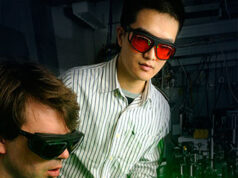This research area supports experimental condensed matter physics emphasizing the relationship between the electronic structure and the properties of complex materials, often at the nanoscale. The focus is on systems whose behavior derives from strong correlation effects of electrons as manifested in superconducting, semi-conducting, magnetic, thermoelectric, and optical properties. Also supported is the development of new techniques and instruments for characterizing the electronic states and properties of materials under extreme conditions, such as in ultra low temperatures (millikelvin), in ultra high magnetic fields (100 Tesla), and at ultrafast time scales (femtosecond). Capital equipment is provided for scanning tunneling microscopes, electron detectors, superconducting magnets, and physical property measurement instruments.
Improving the understanding of the electronic behavior of materials on the atomistic scale is relevant to the DOE mission, as these structures offer enhanced properties and could lead to dramatic improvements in technologies for energy generation, conversion, storage, delivery, and use. Specifically, research efforts in understanding the fundamental mechanisms of superconductivity, the elementary energy conversion steps in photovoltaics, and the energetics of hydrogen storage provide the major scientific underpinnings for the respective energy technologies. This research area also supports basic research in semiconductor and spin-based electronics of interest for the next generation information technology and electronics industries.










